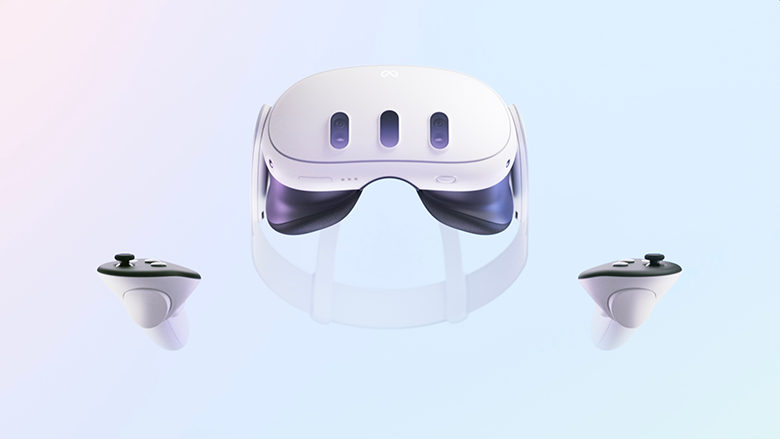Many people who own VR headsets purchase their gear to play games. Others use them for business, training, or artistic endeavours.
While Meta has turned its attention from its old Quest Pro to mainstream — and cheaper — headsets like the Quest 3 and the anticipated lower-cost Quest 3S, Apple has a highly high-end Vision Pro with limited hook-ins to current PC VR tools.
HTC is attempting to bridge the gap in the midrange business mixed reality space with its impending $999 Vive Focus Vision XR headset for those who may need it.
Read also: DJI Goggles: a game-changer for drone pilots
Exploring the future of VR with Focus Vision XR
Like the Quest 3 and Vision Pro, the Focus Vision XR features passthrough cameras that combine images of the outside world with layered virtual objects.
The standalone headset features the exact 2,448×2,448 pixel-per-eye resolution as the company’s previous Vive Focus 3, but it is an upgraded model that still runs on a Qualcomm Snapdragon XR2 CPU. However, that has an enormous 120-degree field of vision and a more excellent display resolution than the Quest 3.
HTC has also integrated eye tracking, a feature that Meta has not included in its headsets since the Quest Pro. Eye tracking also manages the automated measurement of the interpupillary distance, or IPD, to configure the headset.
Although I have yet to use it, the Focus Vision XR is a focused improvement on the capabilities of its current VR gear, with mixed reality and eye tracking as bonus features. With the experimentally built, glasses-like HTC Vive XR Elite, HTC has already dabbled with mixed reality.
However, the Focus Vision XR appears more realistically suited for those wearing glasses, featuring a hot-swappable back battery that lasts around two hours. Although the headset only has 128GB of capacity, it can hold up to 2TB thanks to a MicroSD card slot.
With a DisplayPort mode that connects directly to PC graphics cards and runs programs at 120Hz, which is expected to launch next year, this headset will also perform well for PC gaming.
Read also: Comparing HyperX Cloud Alpha Wireless and Turtle Beach Stealth Pro
Two USB-C ports on the headset may be connected to DisplayPort using an adaptor. Will it feel noticeably better on PC VR than Quest 3, which is already capable of doing so? It’s hard to say.
Focus Vision XR: Balancing price and performance
At $999 (or $1,299 for a version with corporate software features), the Focus Vision XR is much more expensive than the Quest 3 but less expensive than the Vision Pro.
While the Quest 3 is already a fantastic and more reasonably priced multifunctional headset, it’s unlikely to win over many gamers. However, it could assist companies and developers searching for a small, PC-ready training headset to find a medium ground. That makes it the year’s most valuable, expensive, and PC-friendly headset.
















